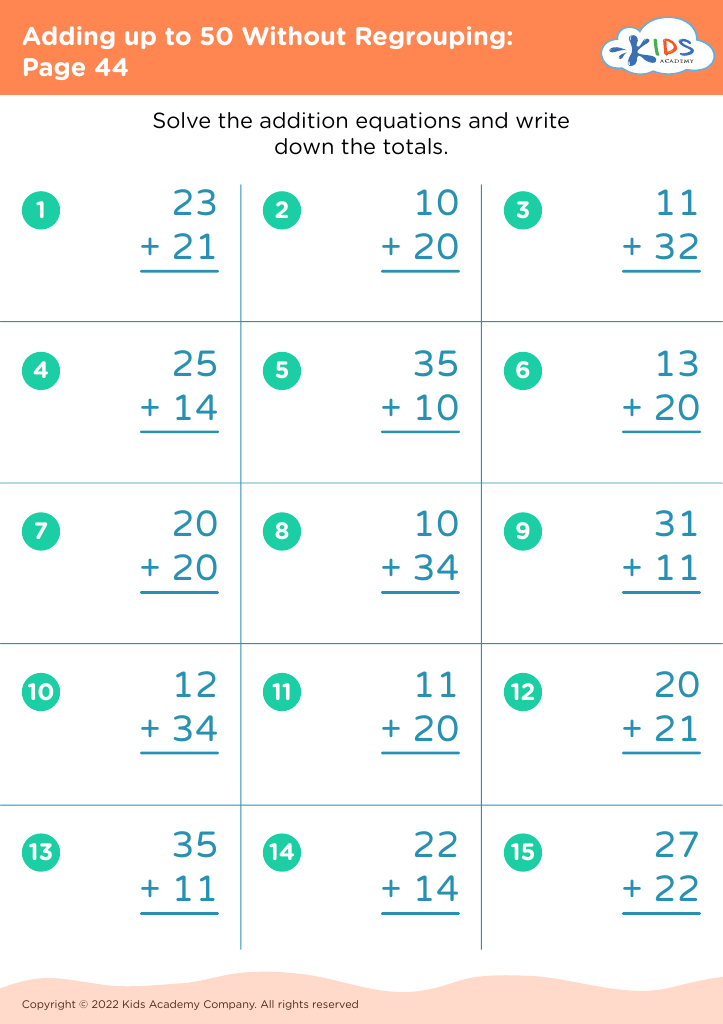Enhance number recognition Adding up to 50 Worksheets for 8-Year-Olds
5 filtered results
-
From - To
Boost your 8-year-old's math skills with our "Enhance Number Recognition: Adding Up to 50 Worksheets." Specifically designed to strengthen number recognition and enhance addition skills, these engaging worksheets provide a fun and interactive way for children to practice essential math concepts. With a variety of exercises tailored to meet their developmental needs, your child will gain confidence in recognizing numbers while mastering addition up to 50. Perfect for both classroom and home learning, these resources encourage independent learning while supporting foundational skills. Help your child succeed in math with our thoughtfully created worksheets, making learning enjoyable and effective!
Parents and teachers should prioritize enhancing number recognition and addition skills for 8-year-olds, especially when it involves adding up to 50, as these foundational concepts are crucial for a child's academic development and daily life. At this age, children begin to encounter more complex mathematical operations—inclusive of multi-digit addition—anger math is vital for problem-solving across various subjects, including science and economics. A solid grasp of number recognition helps them navigate math fluently, laying the groundwork for future learning.
Moreover, strengthening these skills boosts children’s confidence and fosters a positive attitude towards mathematics, which are important indicators of long-term success. Engaging in regular practice of adding up to 50 encourages cognitive development, and aids in developing logical reasoning skills.
Additionally, mastering basic math correlates with better performance on standardized tests, further influencing a child's academic trajectory. Beyond academics, proficiency in numbers enables children to manage their finances, such as allowances or savings, as they mature. By investing time in number recognition and addition, parents and teachers equip children with essential life skills, increase their engagement with math, and ultimately contribute to their overall development in an increasingly numerate world.





















